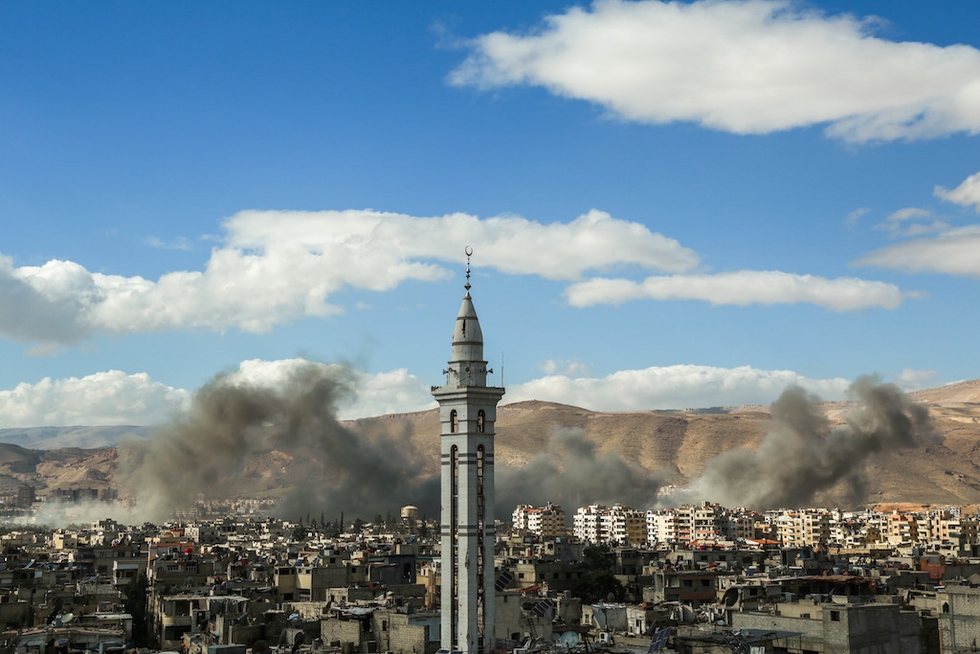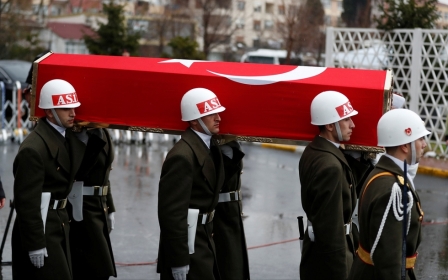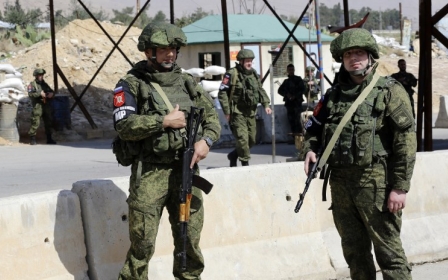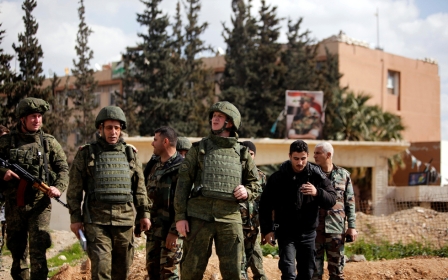World leaders call for Assad to be 'held accountable' over Ghouta violence

World leaders have called for Bashar al-Assad to be "held accountable" for violence in the Damascus suburb of Eastern Ghouta, as the World Health Organisation warned that dozens of people were in immediate need of evacuation from the besieged region.
US President Donald Trump and German Chancellor Angela Merkel in a phone call also said they "urge Russia to end its involvement in the bombing of Eastern Ghouta and to persuade the Assad regime to stop its offensive operations against civilian areas", according to a chancellery statement.
They said Assad "must be held accountable" for the attacks on Eastern Ghouta and the humanitarian crisis in the rebel-held enclave, they agreed in the conversation Thursday.
"This applies both to the Assad regime's deployment of chemical weapons and for its attacks against civilians and the blockade of humanitarian support.
"Both agreed that the Syrian regime and its Russian and Iranian allies are urged to promptly and fully implement" a UN Security Council resolution that calls "for a prompt ceasefire in Syria," said the statement.
What we're calling for as WHO is at the very least an immediate approval from the Syrian government and all the warring parties for evacuation of the critically unwell, starting with the top 84 which have been listed by the NGOs, UN agencies and Red Cross as the most urgent based on WHO's triage criteria
- Peter Salama, WHO
In Eastern Ghouta, hundreds of civilians have been killed since the Syrian army began new air strikes on 18 February in a bid to root out Islamist rebel groups, sparking global outrage.
A senior WHO official told Reuters on Friday that 84 patients including children in Eastern Ghouta were the top priority for medical evacuations among 1,000 sick and wounded needing treatment.
Peter Salama, WHO deputy director and head of its health emergencies programme, also said that the UN agency hoped to deliver vital medical and surgical supplies soon to the district.
"What we're calling for as WHO is at the very least an immediate approval from the Syrian government and all the warring parties for evacuation of the critically unwell, starting with the top 84 which have been listed by the NGOs, UN agencies and Red Cross as the most urgent based on WHO's triage criteria," Salama said in an interview at WHO headquarters in Geneva.
A five-hour daily "pause" announced by Moscow on Monday has led to a reduction in the bombardment, but it falls far short of the UN ceasefire agreed through a Security Council resolution Saturday that has yet to be implemented.
French President Emmanuel Macron also vowed there would be "no impunity" in the event of further chemical weapons use in Syria in a telephone call with Trump on Friday.
Macron "stressed there will be a firm response in the case of proven use of chemical weapons leading to the death of civilians, in close coordination with our American allies," a statement from the French presidency said.
"France and the United States will not tolerate impunity."
Macron and Trump pledged to "work together to allow the resolution to be put in place to allow a ceasefire, delivery of humanitarian aide and evacuation of the injured," the French statement said.
The UN Human Rights Council is to hold an emergency meeting on Eastern Ghouta on Friday after dozens of aid trucks were unable to reach 400,000 suffering civilians a day earlier.
Middle East Eye propose une couverture et une analyse indépendantes et incomparables du Moyen-Orient, de l’Afrique du Nord et d’autres régions du monde. Pour en savoir plus sur la reprise de ce contenu et les frais qui s’appliquent, veuillez remplir ce formulaire [en anglais]. Pour en savoir plus sur MEE, cliquez ici [en anglais].




